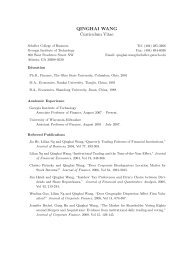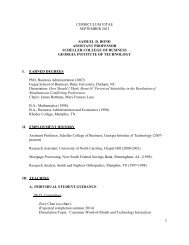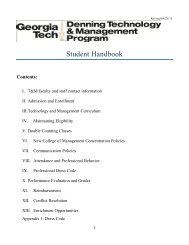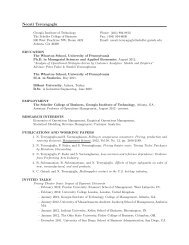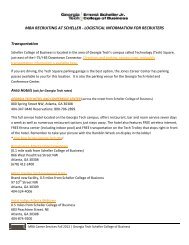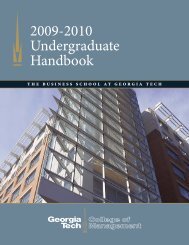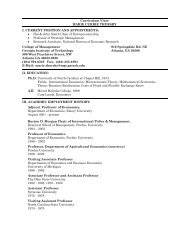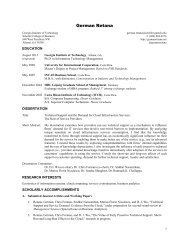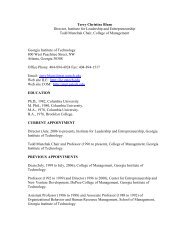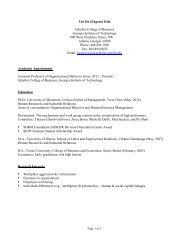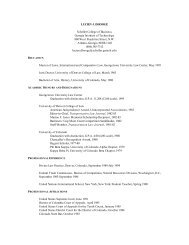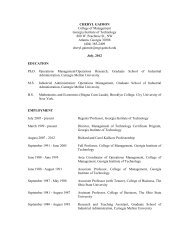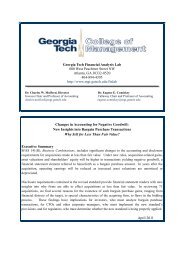Mars-Venus Marriages: Culture and Cross-Border M&A
Mars-Venus Marriages: Culture and Cross-Border M&A
Mars-Venus Marriages: Culture and Cross-Border M&A
Create successful ePaper yourself
Turn your PDF publications into a flip-book with our unique Google optimized e-Paper software.
They show that in a world where incompleteness of contracts is inevitable, trust plays a major<br />
role in economic transactions. In the context of our study, cultural distance between the<br />
acquirer <strong>and</strong> target may be associated with distrust arising from unfamiliarity, thereby<br />
prompting better screening, evaluation <strong>and</strong> potentially more complete contracts between<br />
firms. The acquirers do better due diligence particularly about “cultural fit” when the target is<br />
from a culturally distant nation. Rosenbloom (2002) emphasizes the importance of due<br />
diligence in all transactions-especially those involving parties across national borders. In<br />
particular, he documents a checklist of strategic, operational, financial, tax, legal, <strong>and</strong> cultural<br />
due diligence a typical acquirer should perform to be successful. Consider a situation where a<br />
US firm acquires a Canadian firm versus when it acquires a Malaysian firm. One could argue<br />
that the acquirer will be inclined to be more (justifiably or unjustifiably) confident of their<br />
underst<strong>and</strong>ing of the Canadian environment than the Malaysian environment. In that case, it is<br />
likely that the acquirer will conduct better due diligence in the second case, knowing fully<br />
well that the Malaysian target might have very disparate organizational culture <strong>and</strong> form. This<br />
view is supported by the evidence in Aguilera et al (2004) who show that the greater the<br />
cultural distance between the acquirer <strong>and</strong> the target, the more likely it is that an announced<br />
merger would fall through at the due-diligence stage. The completed mergers we study are the<br />
ones that have survived this due diligence process, thereby being inherently superior in<br />
economic potential than deals that have undergone less severe screening.<br />
Given the data <strong>and</strong> empirical methodologies available, the exact mechanisms that<br />
drive the positive relationship between M&A success <strong>and</strong> cultural are indistinguishable in our<br />
empirical analyses. However, our findings provide strong support to the conjecture that<br />
cultural disparity plays a significant role in determining outcomes of these business<br />
transactions. The evidence points to the need for a deeper underst<strong>and</strong>ing of the mechanisms<br />
by which cultural differences impact business transactions. The widespread view that regards<br />
cultural differences as necessarily detrimental in the context of M&A seems to be simplistic<br />
<strong>and</strong> clearly requires more critical analysis.<br />
18



